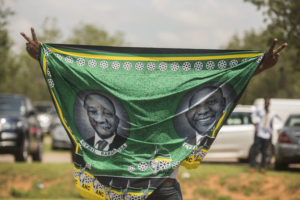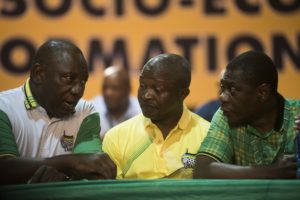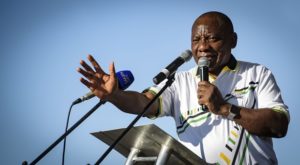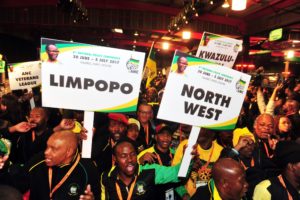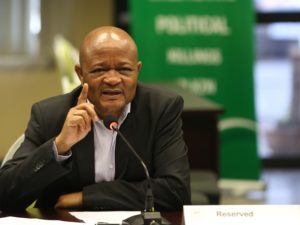Mondli Makhanya: Go find your conscience
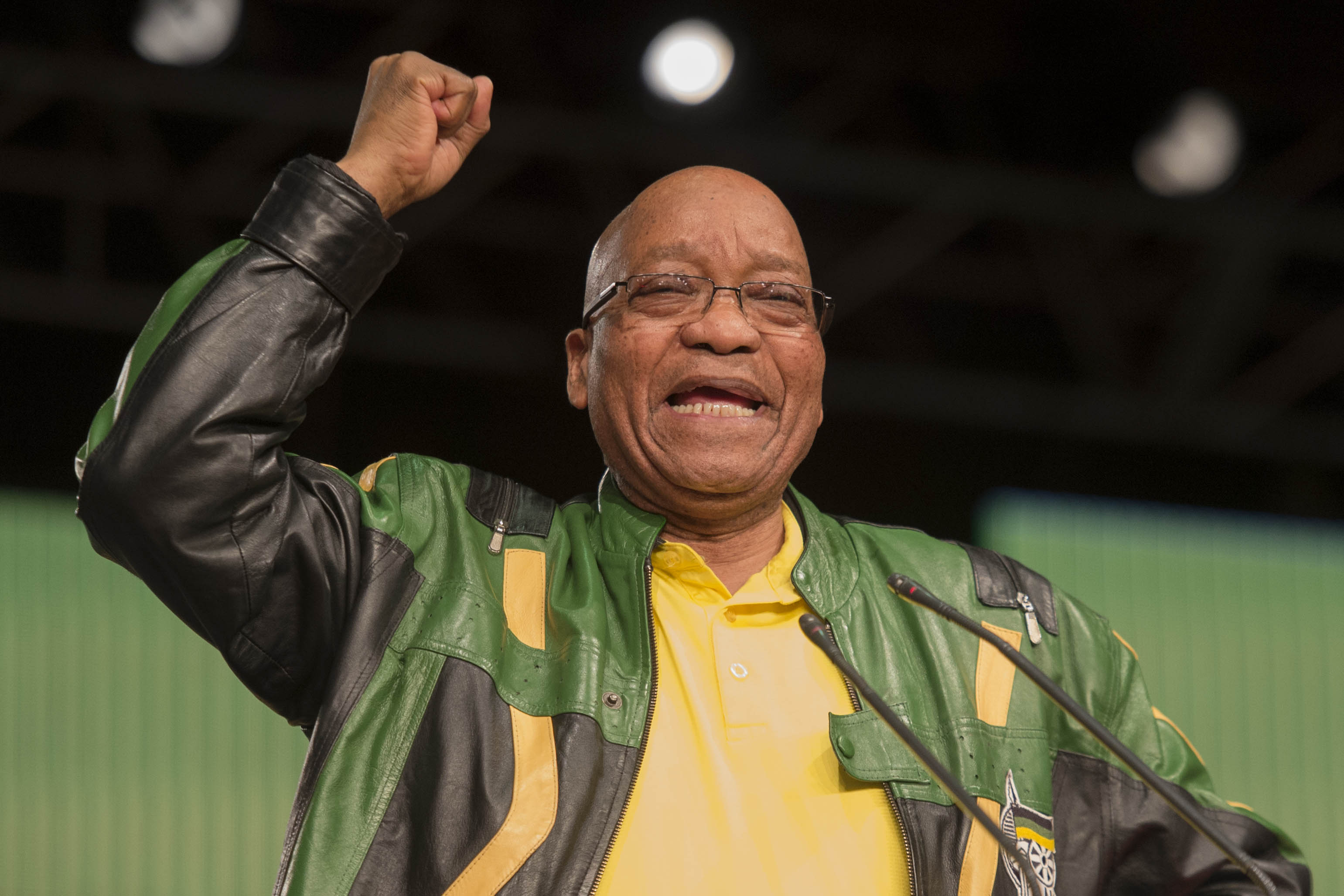
JOHANNESBURG, SOUTH AFRICA – JULY 05: President Jacob Zuma addresses delegates during the African National Congress (ANC) 5th national policy conference at the Nasrec Expo Centre on July 05, 2017 in Johannesburg, South Africa. 3500 delegates from branches across the country gathered for the conference to discuss the party’s policies going into the elective conference in December, where changes and new policies will be ratified. (Photo by Gallo Images / Beeld / Deaan Vivier)
One of this lowly newspaperman’s favourite South African political quotes comes from former president Kgalema Motlanthe.
In a newspaper interview shortly after ANC national executive committee (NEC) member Tony Yengeni had been convicted of fraud, Motlanthe was asked whether the party would kick him out of the positions he held in the party. The answer was typical of the scholarly Motlanthe, placing – as he did – the responsibility back in the hands of the offender.
“The ANC only intervenes when your own conscience fails to guide you,” he said.
That was a long time ago, a time when the ANC believed in the concept of conscience. Actually, I lie. It wasn’t that long ago. It was only 14 years ago – in 2003, to be exact. How things have slid.
Over the past few weeks, ANC leaders have come out one by one to attack this terrible thing called conscience. Leading the charge was none other than President Jacob Zuma, the man who last week survived a vote of no confidence in Parliament. Fuming at ANC parliamentarians who voted for him to be booted out of office during the secret ballot, Zuma told supporters that the “traitors” (as one of his 117 wives called them) would be punished for believing they had their own conscience.
“Those who say they have their own conscience are comrades who take the ANC for granted. Comrades should have an ANC conscience… That is why I want the ANC constitution to work. For those who have two consciences to make space for those who have an ANC conscience,” said the country’s most upstanding citizen.
He was echoing the sentiments of the ever-chewing Bathabile Dlamini, who had invoked the spirit of the ANC ancestors to support keeping Zuma in power.
“When we are inside there [Parliament]‚ we didn’t get there with our conscience. I haven’t put my conscience in Parliament…” she said.
Never mind the fact the people whose names she invoked – Albert Luthuli‚ Oliver Tambo‚ Charlotte Maxeke‚ Solomon Mahlangu and Lilian Ngoyi – were all people of great conscience.
Nomvula Mokonyane, Dlamini’s ANC Women’s League colleague, also weighed in on the matter, saying that “no member of Parliament got there through his conscience, but rather all members are there because of the ANC”.
The governing party’s secretary-general Gwede Mantashe was also scathing about this pernicious enemy and told party members to distance themselves from it because “we all get into lists of the ANC and go to Parliament”.
“I don’t know where this notion comes from that we are a collection of individuals who [each has a] conscience. We are members of the ANC in a party-political system,” he growled.
While not directly attacking conscience, veteran NEC member and presidential hopeful Jeff Radebe said those who had followed their moral and ethical compass in the vote “should have the courage of their convictions to say so” and out themselves.
“The ANC’s position, which was endorsed by the NEC, is very clear. You can never vote for other political parties, especially on a matter where they sought to actually topple the government of the ANC. I myself can never associate with such an initiative,” he said.
Presumably, Radebe is happy to associate himself with the defence of corruption and state capture.
Free State Premier Ace Magashule, whom very few suspect of having a conscience, encouraged those who followed their inner moral voice to be brought to “their senses, focus and never sell out the revolution”.
At this point, it might be useful to refresh the minds of the comrade leaders about the meaning of the word ‘conscience’. Perhaps then they will not hate the concept so much and maybe they will be able to rediscover theirs.
Oxford Dictionary: “An inner feeling or voice viewed as acting as a guide to the rightness or wrongness of one’s behaviour.”
Cambridge Dictionary: “The part of you that judges how moral your own actions are and makes you feel guilty about bad things that you have done or things you feel responsible for.”
Webster’s Dictionary: “The faculty, power, or inward principle which decides as to the character of one’s own actions, purposes, and affections, warning against and condemning that which is wrong, and approving and prompting to that which is right; the moral faculty passing judgement on one’s self; the moral sense.”
Maybe it would also be useful to direct them to the reflections on conscience by some global icons of the past century.
“There comes a time when one must take a position that is neither safe, nor politic, nor popular, but he must take it because conscience tells him it is right.” – Martin Luther King Jr.
“The only tyrant I accept in this world is the ‘still small voice’ within me. And even though I have to face the prospect of being a minority of one, I humbly believe I have the courage to be in such a hopeless minority.” – Mahatma Gandhi.
“I was made, by the law, a criminal, not because of what I had done, but because of what I stood for, because of what I thought, because of my conscience… If I had my time over I would do the same again. So would any man who dares call himself a man.” – Nelson Mandela.
So, dear ANC leaders, conscience is not such a bad thing. Please find yours. And exercise it.
– Mondli Makhanya is editor of City Press.
* This article was first published in City Press on 26 November 2017.
(Photo credit: Gallo Images / Beeld / Deaan Vivier)
